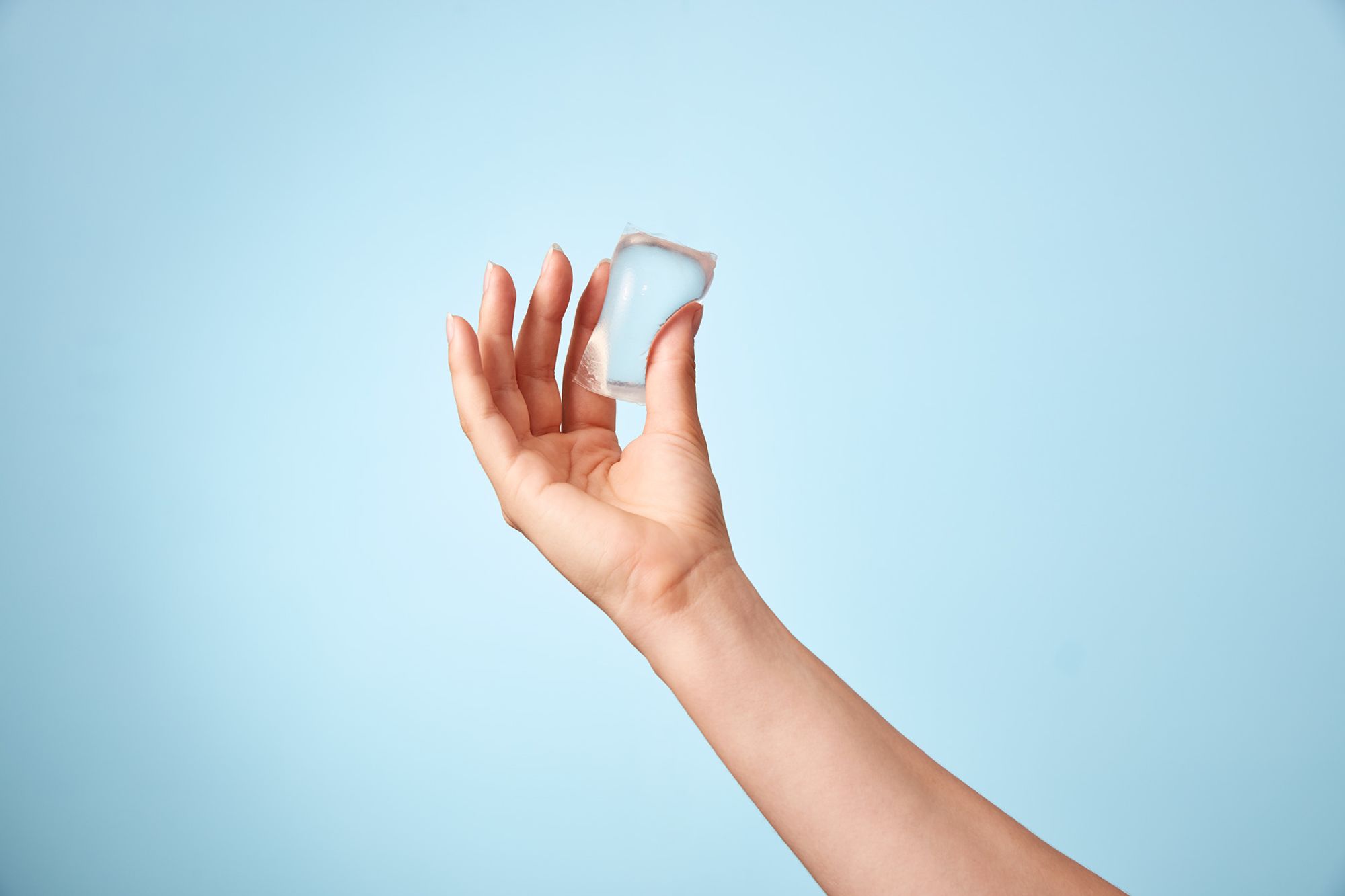After you finish your fries, eat the ketchup packet. When you add your pasta to boiling water, toss the bag into the pot, too.
If these instructions sound confusing to you, it’s only because you haven’t yet heard of Notpla, a London-based startup company that is designing a seaweed-based replacement for single-use plastic packaging. Founded in 2014, the company closed a £10 million ($13.5 million) Series A financing round last month, led by the VC firm Horizons Ventures, to scale and further develop its product line.
Notpla’s products are meant to be composted or dissolved after use – though some are edible, too. Current offerings include sachets for condiments, water and even alcohol; a film wrap for products in your pantry or bathroom, like coffee or toilet paper; and takeaway boxes that replace plastic-based coating with seaweed lining to make them fully biodegradable.
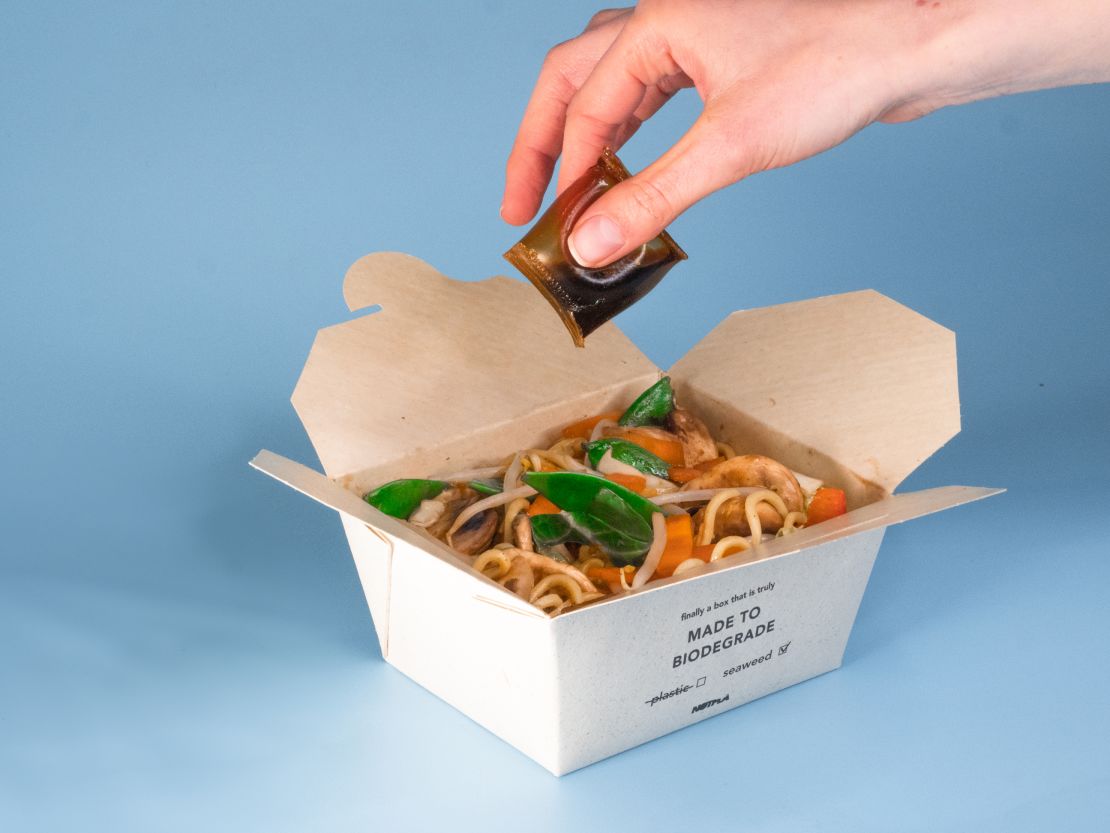
Notpla design director Karlijn Sibbel says they look to nature as inspiration “for the ideal packaging,” like the skin on a fruit. “A peel will eventually be used (as nutrients) by nature, and disappear and become a part of the cycle,” she said.
The approach feels especially relevant as the world is coming to terms with the effects of decades of unfettered plastic production. According to the UN, 300 million tonnes (331 million tons) of plastic waste are produced globally each year, and out of the estimated 8.3 billion tonnes (9.15 billion tons) of plastic produced since the early 1950s, about 60% has been landfilled or discarded outdoors. Microplastics – tiny particles that are often the result of larger plastics breaking down – pollute the ocean, the air and our bodies.
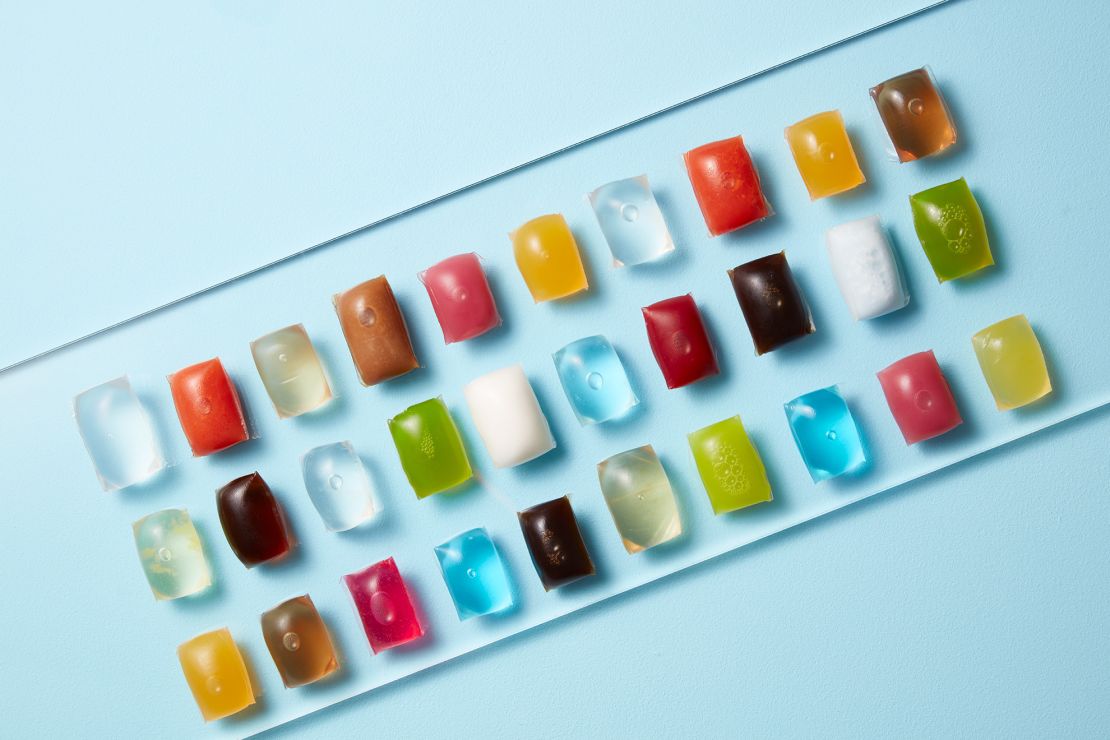
Over the past few years, there has been a growing movement against single-use plastics as many experts have argued the products are unnecessary and harmful, and businesses have come under fire for using them excessively – like in 2019, when Whole Foods’ peeled and individually wrapped oranges went viral. In the US, some states and municipalities have taken action: New York banned most plastic shopping bags, and in Miami Beach, plastic straws have been outlawed. Overseas, the European Union put a broad ban on single-use plastics into effect this summer, and India plans to follow suit next year, the government announced in August.
“It’s getting more and more clear how big the plastic problem is,” Sibbel said. “Manufacturers are “using materials that last for thousands of years,” she explained, but for products that are only in use “for a few minutes.”
“That mismatch is something that we need to solve,” she added.
Rethinking plastic
Notpla’s founders, Rodrigo García González and Pierre Paslie, initially looked to seaweed as the solution to the world’s plastic problem because it is abundant, grows quickly, doesn’t compete with land crops, and sequesters carbon from the air, Sibbel explained.
There are also many different seaweed species, and it can be harvested or farmed. (Notpla uses farmed plants.)
“Seaweed doesn’t use land; it doesn’t use pesticides,” Sibbel said. “It can grow into the ocean and the sea, where it actually has a lot of positive benefits so it can create new ecosystems for other organisms to thrive in.”

Since its founding, the startup has been awarded grants from the British government agency Innovate UK and the circular economy nonprofit Ellen MacArthur Foundation for its first product, the Ooho sachet, which holds single servings of liquids. The new financing round will go toward ramping up the production of the Ooho and Notpla coating, while further developing their new seaweed paper and multipurpose film wrap.
The paper is made from the fibers left over from creating other Notpla products and can be used to make items like gift wrap or clothes tags, while the film wrap can hold most dry goods or wet goods with low water content.

“The exciting thing is that this is a film that can replace most of the flexible packaging that you see around,” Sibbel said. The potential contents could include coffee grounds, toilet paper or the screws included for furniture assembly. For food items, such as pasta, they have even experimented with adding flavors to the packaging, so that dissolving the bag could add seasoning to the skillet.
“You can cook with it. And you can really start to rethink what we can do with these materials,” she explained.
Industry shifts
Some of Notpla’s products are available online, but the company has also landed some major partnerships in the UK and around Western Europe to provide beverages at festivals like DGTL in Amsterdam and Glastonbury in Somerset. In 2019, Notpla distributed 36,000 Oohos filled with the energy drink Lucozade Sport during the London Marathon, and it provided edible Glenlivet capsules at London Cocktail Week.
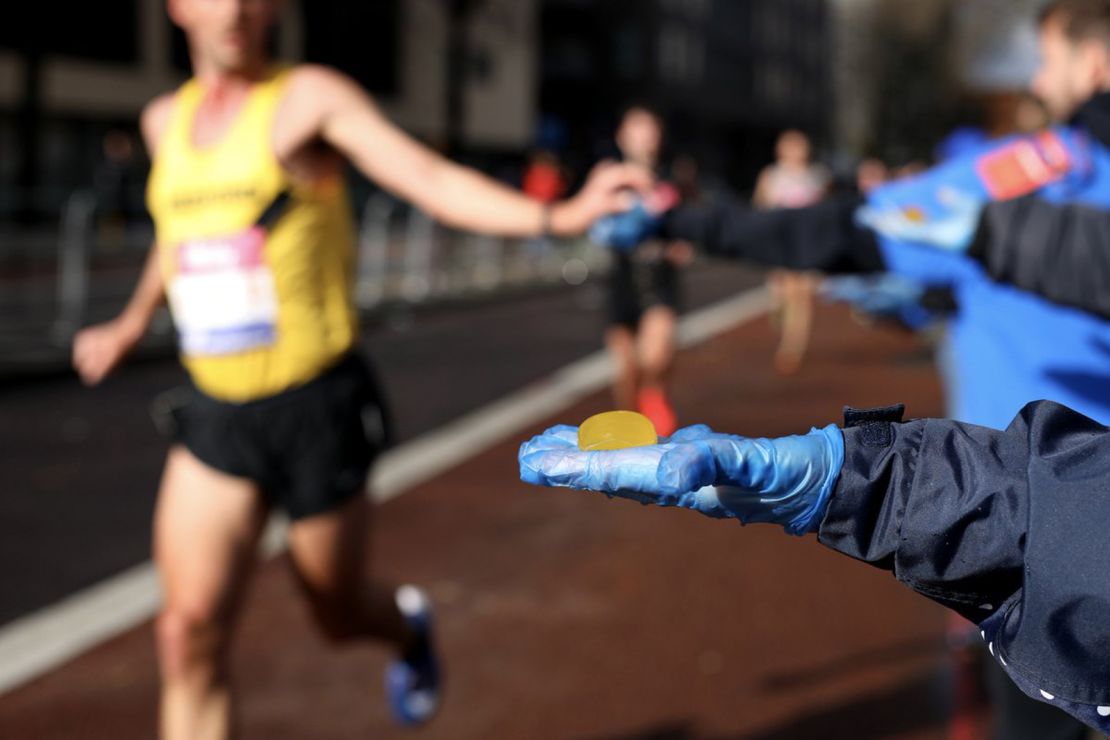
Last year, the startup tested 30,000 takeaway boxes at different UK restaurants in collaboration with the online food ordering service Just Eat, and plans are underway to offer the boxes around Europe in 2022.
As they scale up, Notpla’s team hopes seaweed could replace single-use plastic in the supply chain more broadly, Sibbel said, but with the volume of plastics used around the world, she understands the enormity of such a task.
“I don’t think one material (or) one solution is going to solve everything, but we think that seaweed really ticks the right boxes,” she said.
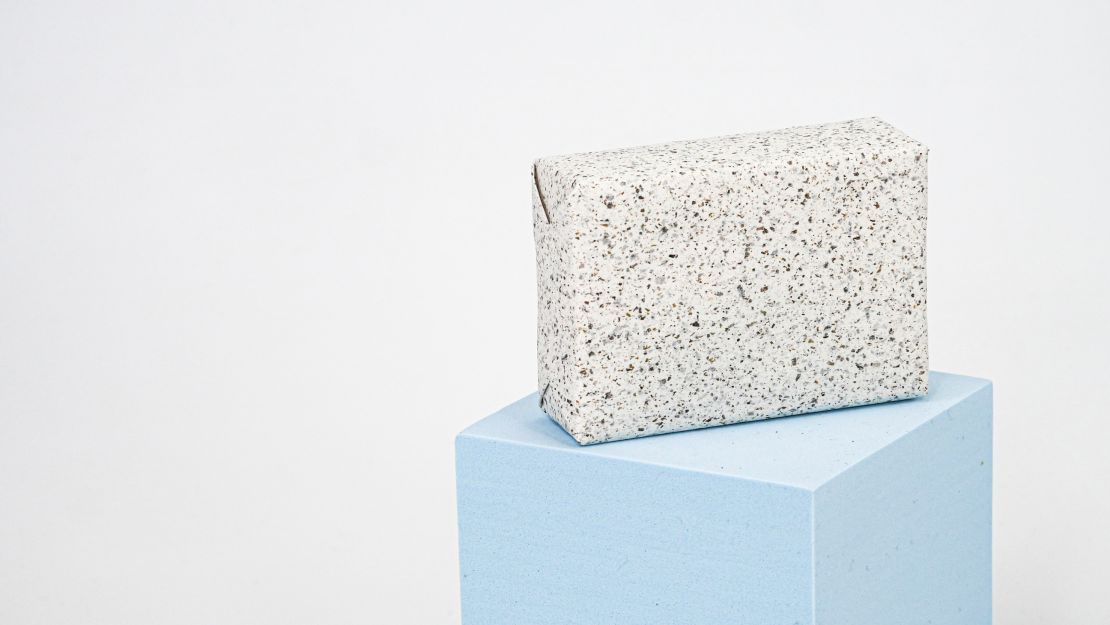
Rethinking when and why we used plastic will be crucial to Notpla breaking into other industries, Sibbel said. “Plastic can do a lot of things,” she added. But it’s about asking, “Is it really necessary for this application?”
She points to packaging for produce like tomatoes, which have holes to let the food breathe.
“You don’t have to have the properties of plastic. Why are we using plastic?” Sibbel asked, laughing. “I really hope to see the industry move and also embrace (change) in a positive way.”
